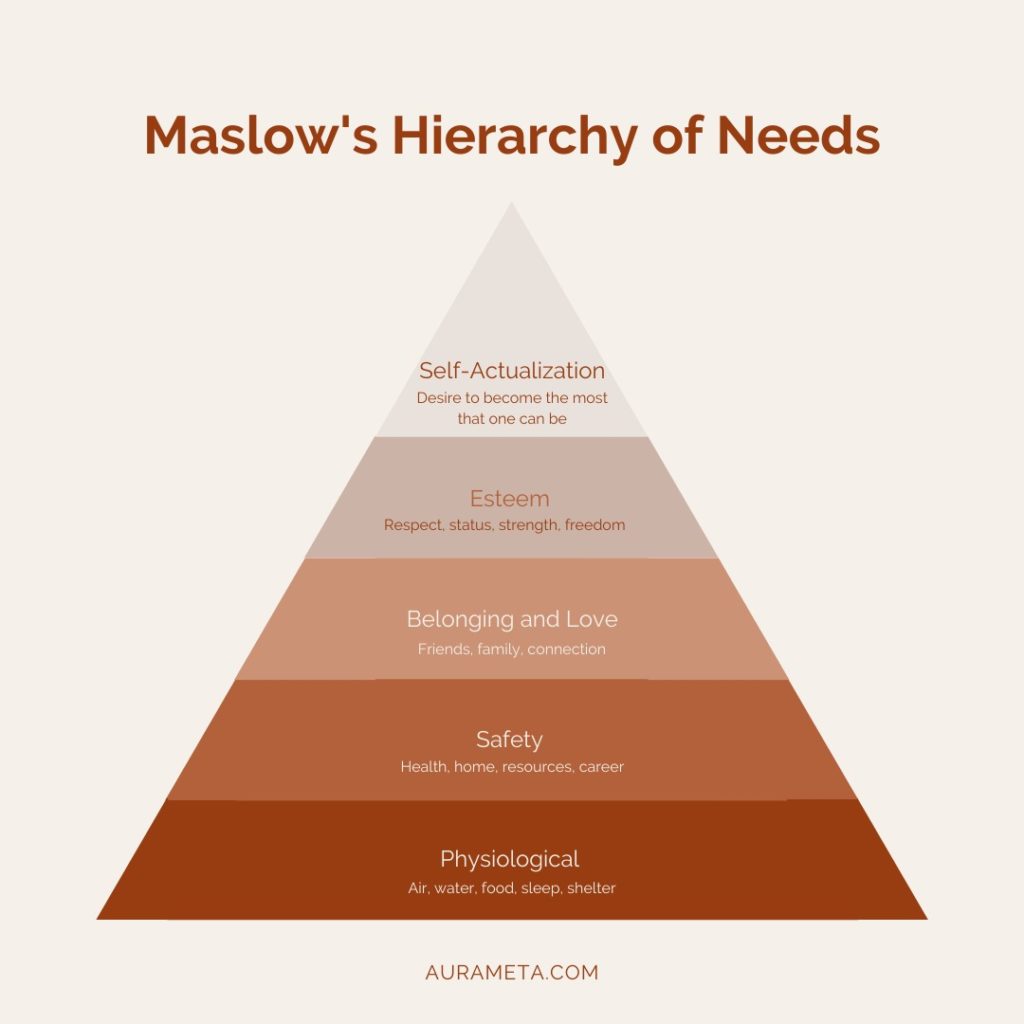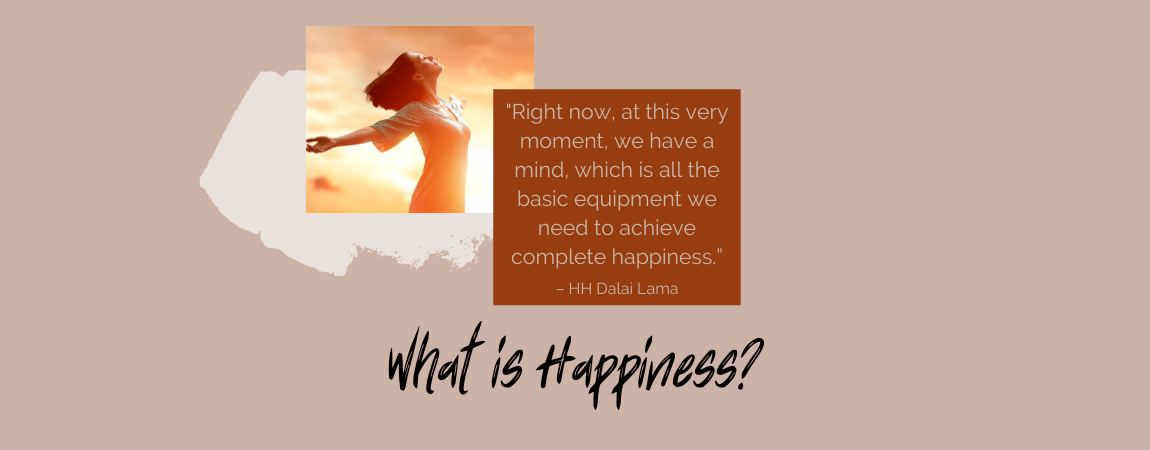What is happiness? Most dictionaries will answer the question by invoking feelings of pleasure, satisfaction or even fulfillment. If this all sounds a bit too easy compared to your daily life at the moment, we have some good news. Believe it or not, how to be happy in life isn’t rocket science! In direct correlation with contentment, happiness may be at the tip of your fingers. Yes even during lockdown! This week we explore human needs and how they may answer the question “how to live a happy life?”
“We don’t need more money, we don’t need greater success or fame, we don’t need the perfect body or even the perfect mate. Right now, at this very moment, we have a mind, which is all the basic equipment we need to achieve complete happiness.” Dalai Lama
Tell me your needs and I will tell you how to be happy
Do any of these common ways by which we tend to define our happiness resonate with you?
- Emotions – does how you feel determine your happiness?
- Cognitive appreciation – do achievements, successes, but also failures and setbacks define whether you feel happy?
- Meaning – how important to you is having a purpose in life?
What if finding contentment through answering our needs could lead to a happy life? Our blend of neuroenergetic kinesiology and executive coaching at Aura & Meta, means that we work from a holistic perspective of the body, mind and spirit. Very similarly, we can choose to see happiness as a sum of many parts, a holistic result.

During one-on-one sessions or group coaching, we refer back to Maslow’s Hierarchy of Needs to explain the notion of contentment. By organising the human experience in different essential stages, from catering to basic needs to achieving our full potential, how to be happy in life suddenly makes more sense. This pyramidal view on human fulfilment offers up a pragmatic and logical definition of how to be happy in life. Each level of the pyramid offers different ways to find contentment everyday and in the long term. Building upon each stage, we may first seek to honor our basic physiological needs, to feel rested and healthy. Second comes the search for security, this could be physical, like living in a neigbourhood that feels safe, or financial, like being able to count on a stable income. Third, we strive to find love and social belonging, this part centres around our family, friendships and intimate relationships. Fourth, we express a need for esteem, recognition. In this area, we ultimately yearn for a sense of accomplishment. Lastly, in fifth position and at the top of the pyramid stands our need for self actualisation. At this point, we seek alignment with our core values and deepest desires so as to operate at our full potential. In executive coaching, we use this structure to better identify areas that require more support than others.
Chakras may be compared to Maslow’s Hierarchy of Needs. In neuroenergetic kinesiology sessions, we work around finding imbalances in the chakras, also defined as energetic centers. The distribution of the 7 energetic centers from the base to the crown of the head reflects a similar definition of living a fulfilled life. For example, balancing the base chakra revolves around grounding, survival and looking to our roots. As we move up towards the top of the body, the centers begin to coincide with more elevated aspects of our existence like our intuition and our spirituality. At the very top, the crown chakra corresponds to the tip of Maslow’s pyramid: self actualisation. In chakra work, we seek to regain balance in specific areas of our lives, which contribute to our overall happiness.
Redefining happiness for ourselves
As seen previously, how to be happy in life is up to us. To best understand this idea, we may ask ourselves whether we evaluate our happiness according to our own needs or those of the expectations of others? Very often, our direct environment (our parents, our partner, our boss, our social circle) tends to influence our idea of a life lived happily. The understanding of how to be happy in life is built upon education, religious or spiritual beliefs and social norms. As a result, the definition of happiness may vary from one person to the next. The beauty of this is that nobody else can decide whether we are happy or not. Read this again. We simply need to ask ourselves what parameters are important for our happiness. The good news from this point of view is that we all have the ability to be happy!
Life is always supporting us towards happiness
When our lives are blessed with positive events and we get what we want, it is very easy to find happiness. The reverse poses more of an issue. How to be happy in life is trickier when things don’t quite go our way. While facing setbacks, we may practice seeing happiness as a greater picture within which all experiences fit – including the negative ones! The Dalai Lama is quoted to have said: “Remember that sometimes not getting what you want is a wonderful stroke of luck.” What if we practiced perceiving each experience as life happening for us and not against us? Seeing any challenge could be a beautiful lesson may put us in a better position to achieve our goals in the long run.
Happiness is about identifying what you need to thrive!
What is happiness? You decide and we will support you. If it is about finding joy in the little things in our daily lives, then so be it. If it revolves around fulfilling our life’s mission and impacting the world around us in a positive way, why not? Some may feel on top of the world when they succeed at a professional project and finally get that promotion or when they are with their family. All of the aforementioned things? The saying goes that beauty is in the eye of the beholder, what if happiness worked the same way?
Whether we associate how to be happy in life with peace of mind or a riveting lifestyle, finding contentment is a crucial component of our human existence. Sometimes, it takes a little nudge in the right direction to help us reconnect with what makes us happy. Our 8-week programme Reset. Realign. STOP existing. START LIVING supports individuals wanting to shape a life story that includes happiness so to thrive in the long term. Sign up before it is too late, the course begins on February 15th.
.

